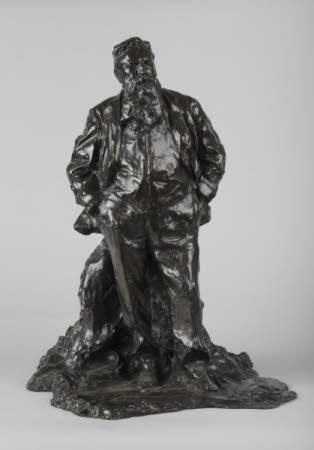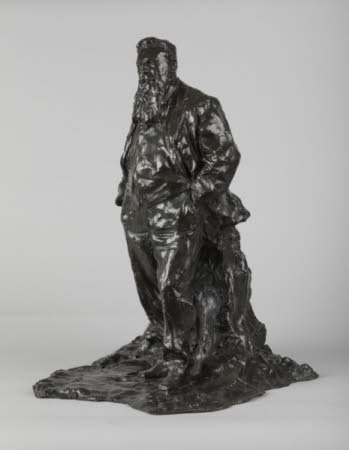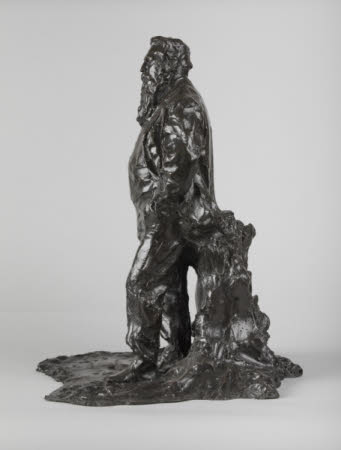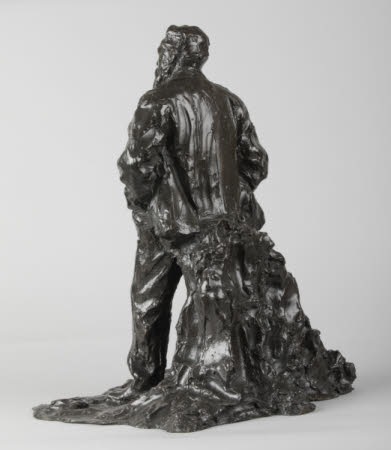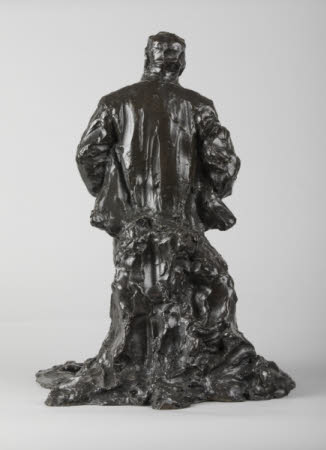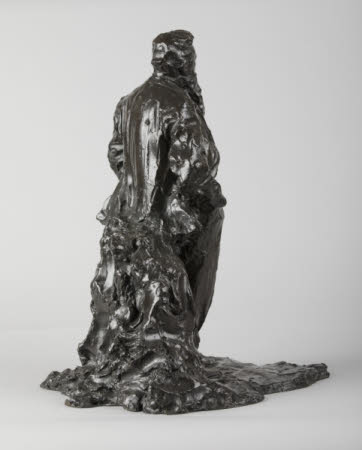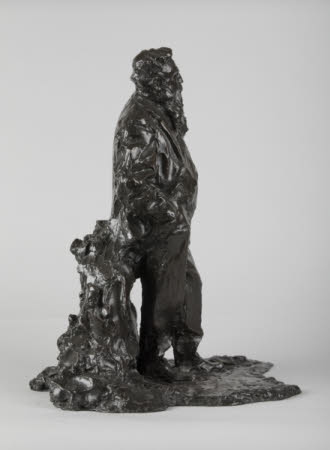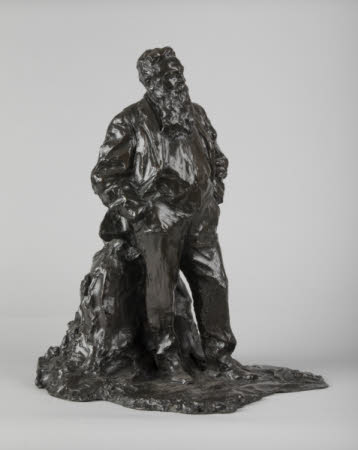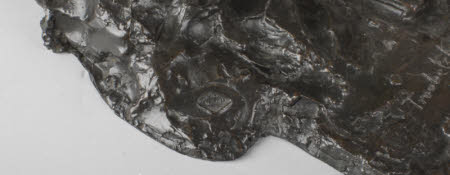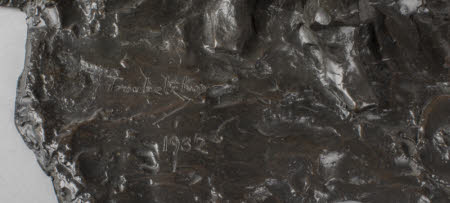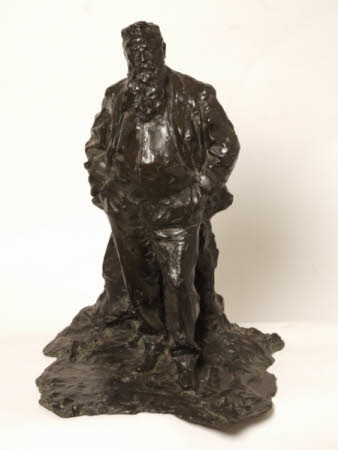Auguste Rodin
Prince Paolo (Paul) Troubetzkoy (1866-1938)
Category
Art / Sculpture
Date
1932 (signed and dated)
Materials
Bronze
Measurements
490 x 390 x 400 mm
Order this imageCollection
Shaw's Corner, Hertfordshire
NT 1274945
Summary
Bronze statue of Auguste Rodin (1840–1917) by Prince Paolo (Paul) Troubetzkoy (1866-1938), 1932. Rodin stands with his hands in his trouser pockets, his left leg slightly forward, looking ahead. The base of the statue is roughly modelled and irregular in shape, the figure leans against a supporting stump to waist height, also roughly modelled. Signed and dated to the base with a foundry stamp. Signed and dated on base: “Troubetskoy 1932”. Originally sculpted in 1905, cast in bronze by the Attilio Valsuani foundry in 1932. Stamped on base (front left to the side): “CIRE / A. VALSUANI / PERDUE”.
Full description
Bernard Shaw was photographed with the Troubetzkoy sculpture of Rodin in 1946 to celebrate his 90th birthday (Hulton Archive/Getty Images), indicating his affection for the piece. Troubetzkoy and Rodin were Shaw’s favourite sculptors. Troubetzkoy first met his fellow sculptor Auguste Rodin in the winter of 1905. The two men became friends, and it was around this time that Troubetzkoy conceived of his sculpted portrait of Rodin. The Shaws’ piece is a later work, dating from 1932. Born in Italy to a Russian father in 1866, Troubetzkoy was largely self-taught as a sculptor, and became a well-known portraitist at an early age. He exhibited work at the 1900 World Exhibition in Paris, where his sculpture shared first prize with Rodin. The 1908 bronze bust of Shaw by Troubetzkoy was exhibited at the 1913 Secession in Rome, displayed alongside the statuette of Rodin. The piece is stamped “Cire, A. Valsuani, Perdue”, which refers to the Valsuani foundry for artists using the “lost wax” technique of casting. (Alice McEwan, 2020)
Provenance
The Shaw Collection. The house and contents were bequeathed to the National Trust by George Bernard Shaw in 1950, together with Shaw's photographic archive.
Credit line
National Trust Collections (Shaw’s Corner, The George Bernard Shaw Collection)
Marks and inscriptions
On base: Troubetskoy 1932 On base, front left to the side: CIRE / A. VALSUANI / PERDUE
Makers and roles
Prince Paolo (Paul) Troubetzkoy (1866-1938) , sculptor
